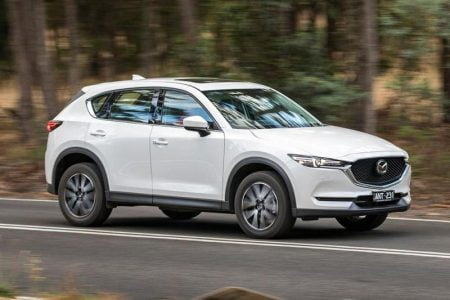So, you want to make your truck faster, stronger, or maybe just more fun to drive? Good call. Stock trucks are built to be reliable and meet emissions rules, but that doesn’t mean they’re running at their best. There’s a lot of power hidden under the hood—if you know how to unlock it.
Upgrading a truck isn’t as simple as just throwing in a new part and calling it a day. Some mods work great together, while others can mess up your engine if you’re not careful. If you’re serious about making your truck perform better, you need a plan. That includes staying on top of legal and tax requirements—getting Form 2290 is important if your truck exceeds the weight threshold for heavy highway vehicle use. Let’s break down everything you should know before getting started.
What Do You Want to Improve?
Not all upgrades do the same thing. Some boost horsepower, others improve fuel efficiency, and some make your truck more capable for towing or off-roading. Before you spend money on parts, ask yourself:
- Do you want more speed and acceleration?
- Are you trying to improve towing power?
- Do you want better fuel mileage?
- Are you upgrading for sound and looks, or do you want real performance gains?
The best upgrades depend on your goal. If you just start adding random parts, you might end up wasting money—or worse, hurting your engine.
Tuning: The Most Important Upgrade You Can Make
Before you touch anything else, a performance tuner is one of the smartest upgrades. Why? Because your truck’s computer controls everything—from fuel injection to turbo boost levels—and factory settings are holding it back.
Tuning adjusts these settings to unlock more power, improve throttle response, and even boost fuel economy. As such,RaceMe tuners, or other options appropriate for your vehicle type are a great way to remove factory restrictions and unleash serious horsepower. They also let you tweak settings based on what you need, whether that’s better towing performance or more aggressive acceleration.
A good tuner alone can make a truck feel completely different, even before adding other upgrades.
Easy Bolt-On Mods for More Power
Once you’ve tuned your truck, the next step is to improve how air and fuel move through the engine. More airflow + better fuel delivery = more power. Here are some of the best upgrades:
1. Cold Air Intake
Your engine needs oxygen to burn fuel, and stock air filters limit how much air gets in. A cold air intake replaces the factory system with a bigger, high-flow filter that brings in more oxygen-rich air. The result? A small but noticeable horsepower boost and a deeper engine sound.
2. Performance Exhaust System
A restrictive exhaust holds your engine back. Upgrading to a wider, high-flow exhaust system helps gases exit faster, reducing backpressure and giving your truck a more aggressive sound. If you drive a diesel, deleting the diesel particulate filter (DPF) can unleash serious power—but keep in mind that emissions laws vary depending on where you live.
3. Bigger Intercooler (For Turbo Trucks)
If your truck has a turbo, an upgraded intercooler helps cool the compressed air before it enters the engine. Cooler air is denser, meaning more power and efficiency. This upgrade is especially useful if you tow heavy loads or live in a hot climate.
What About Fuel Economy?
A lot of people think performance upgrades kill fuel economy, but that’s not always true. A tuned engine that runs more efficiently can actually increase MPG—especially if you drive a diesel.
Some ways to improve fuel efficiency while upgrading performance:
- Tuning: A well-tuned engine burns fuel more efficiently.
- Cold Air Intake: More oxygen means better combustion.
- Exhaust Upgrades: A less restricted exhaust reduces engine strain.
- Driving Style: Even with upgrades, flooring the gas pedal all the time will burn more fuel.
If your goal is better mileage, focus on efficiency-based upgrades instead of raw horsepower.
Towing? Here’s What You Need to Know
If you haul trailers or heavy loads, some upgrades can make a huge difference.
- Transmission Tuning: Factory settings limit shift points to protect the transmission, but a tune can optimize shifts for better towing performance.
- Upgraded Radiator & Cooling System: Towing puts extra strain on your engine, and overheating is a serious risk. A bigger radiator helps keep temperatures in check.
- Airbags or Helper Springs: These improve suspension stability when hauling heavy loads.
A tuned and well-upgraded truck will tow better, with more torque and smoother acceleration.
The Big Question: Are Mods Safe for Your Engine?
Not all upgrades are good for your truck. Some can cause damage if not installed correctly or if they push the engine too hard.
To keep things running smoothly:
- Get the right tune: A bad tune can hurt your engine more than help it. Stick to trusted tuners.
- Upgrade in the right order: Start with tuning, then airflow mods, then fuel and cooling upgrades.
- Don’t overdo it: Some mods (like extreme tunes or oversized injectors) can stress your engine and transmission.
If you do it right, performance upgrades won’t ruin your truck. In fact, they can actually make it last longer by reducing strain on stock parts.
Final Thoughts: Build Your Truck the Right Way
Upgrading your truck is about balance. If you only add power without improving cooling or suspension, you might end up with problems. The best setups focus on performance, efficiency, and reliability.
If you’re serious about making your truck faster, stronger, or more capable, start with a performance tuner. Then, build from there based on your goals. Whether you want better towing, more speed, or just a louder exhaust, the right upgrades can turn a stock truck into something way more fun to drive. So, what’s your first mod going to be?






